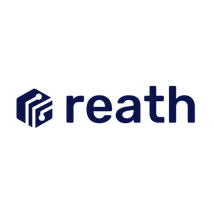Learnings from the Packaging Reuse Data Collaboration
Having recently completed the 6 month programme of workshops, collaborative learning and 1:1s, hosted by Microsoft and the Open Data Institute, we have been reflecting on our time in the Peer Learning Network and its impact on our data collaboration.
The Packaging Reuse Data collaboration, combined the expertise of Reath, Zero Waste Scotland and Senior Sustainability Researcher, Dr Katherine Ellsworth-Krebs, to explore how the Open Data Standard, reuse.id, could move the needle on reusable packaging.
As an Alpha version, ripe for further development, we wanted to investigate how reuse.id could achieve maximum impact, by exploring topics such as:
The role of data in new legislation and upcoming reforms of the UK Packaging Waste regulations
Corporate applications of circular business models
Academic research for peer reviewed papers, to disseminate the value of reuse.id
The workshops put on by the Peer Learning Network helped to broaden our understanding of the data sharing landscape and introduced us to the types of trust challenges we may face in the future, as we continue to progress the Open Data Standard.
As well as learning about data ecosystem mapping, which we covered in an earlier blog, we were guided by the experts through issues around trustworthy computing, data governance and sustainable data access.
Here are the highlights from our learnings:
Trustworthy Computing
The workshop on trustworthy computing was hosted by Microsoft and led by Microsoft researcher, Kapil Vaswani. We learnt about the various technical mechanisms available for the trustworthy handling of data, such as k-anonymity, differential privacy, federated learning and confidential computing.
K-anonymity is the concept of anonymising data through the methods of generalisation and suppression, until you achieve “k” identical values, so the data cannot be traced to an individual.
Differential privacy entails introducing noise into a dataset in order to mask sensitive data, but without compromising the overall statistical properties.
Federated learning is a machine learning technique, which relies on training the models locally, without ever releasing or exchanging raw data.
Confidential Computing involves organisations sharing encrypted data with a trusted third party. The data is then decrypted inside the confidential computing environment and only the insights are released across the organisations.
Understanding these technical levers for mitigating data sharing trust issues, is particularly insightful as we consider the future of reuse.id and what part (if any) open data will play.
Data Governance
Next we attended a workshop on data governance, hosted by Andrew McMillan and Sue Chadwick from Pinsent Masons LLP. We learnt about data sharing models, agreements and licensing and the legal processes involved in data sharing relationships.
“Good governance is about ensuring stakeholders feel heard and represented.”
Research done by Pinsent Masons LLP and the Open Data institute, delved into the legal and governance considerations of establishing effective data trusts. Their work highlights the important role good governance plays in mitigating distrust, and outlines a framework for data sharing initiatives to follow:
Organisations engaging in data sharing should align around a clearly defined purpose
Rules should be created to underpin the purpose and should address the roles of Data Provider, Data User and Data Steward
Decisions should be made as transparently as possible
Accountability should be enforced and breaches should be handled with sanctions
The topics covered in this session have helped to inform our plans, as we design our own governance strategy and steering group for reuse.id. Our main takeaway from the session has been the importance of transparency and the involvement of all key stakeholders in the design of the governance strategy.
Sustainable Data Access
The final workshop was led by Ben Snaith and Joe Massey from the Open Data Institute, where they shared the ODI’s research into the sustainability of data collaborations and organisations.
In this context, sustainability was defined as the ability of an organisation to continue operations so that it can deliver on its purpose. A crucial part of sustainable data access is an organisation’s ability to maintain financial capacity over time.
A key problem for data sharing institutions can be the misalignment of the revenue model with the institutional goals. Tensions can arise when the goal is to provide data openly, but the financial sustainability is dependent on selling access.
The ODI has created the Sustainable Data Access Workbook to help data sharing organisations make better decisions about revenue models. The workbook has helped us to think more closely about our current revenue model and to identify potential new revenue streams as we start to scale.
In summary...
The sessions hosted by the Peer Learning Network have deepened our knowledge around the potential challenges we may face, as we continue to progress the Data Standard. Each topic has provided another signpost in the complex landscape of data sharing, as we navigate our next steps. We’re still deciding on the destination, but at least we have the tools to get there.
